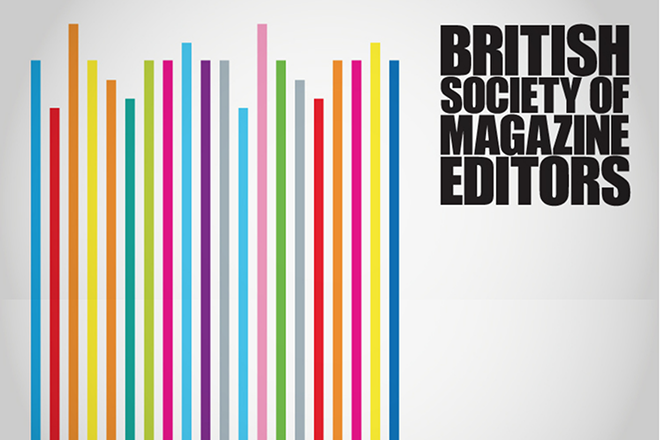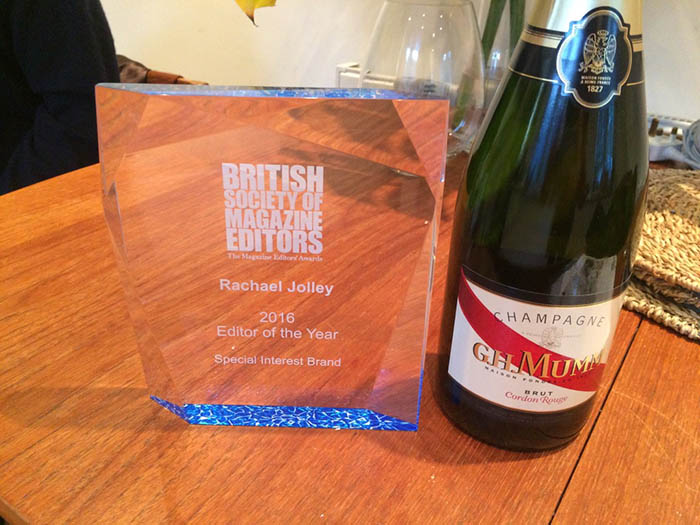10 Mar 2017 | Denmark, Digital Freedom, Europe and Central Asia, News
[vc_row][vc_column][vc_column_text] Few people take religion less seriously than the Danes.
Few people take religion less seriously than the Danes.
Only 19% consider religion to be an important factor in their day to day lives. While some 76% remain members of the state church, that figure is down from 83% in 2006, and more than 24,000 people left the institution last year. Church going remains popular at Christmas, weddings and baptisms, but many churches are almost empty on any given Sunday. Long gone are the days when criticising the doctrines of Lutheranism or the Lutheran state church would land you in prison (or on the scaffold). So it created quite a stir when in February a local prosecutor announced that a Danish man was being charged for violating Denmark’s blasphemy law, which has been dormant since 1971 and last resulted in a conviction in 1946. A move approved by Denmark’s chief prosecutor.
How was a dead letter such as the Danish blasphemy ban suddenly revived?
The first step was taken by the Danish Criminal Law Council, an expert body advising the Ministry of Justice. In 2015 it released a lengthy statement on the blasphemy ban arguing that the burning of holy books would still be punishable, despite the decades-long practice of emphasising the importance of free speech over religious feelings. However, suspiciously, the expert body omitted any reference to a case from 1997 in which a Danish artist burned the Bible on national television.
Back then a number of complaints from the public were dismissed by the chief prosecutor emphasising among other things the importance of freedom of expression. It is difficult to understand why this seemingly clear precedent was disregarded by the expert body. But it was this questionable interpretation that paved the way for bringing back from the dead a ban thought of as antiquated and incompatible with a secular liberal democracy by most Danes, and indeed by most Europeans, since only five EU-member states still have blasphemy bans on the books.
One of the reasons cited by the expert body for punishing the burning of holy books is the need to prevent religious extremists – at home and abroad – from instigating riots and violence as a result of having their religious feelings insulted. This is a deeply problematic argument in and of itself, but even more so in the context of Danish newspaper Jyllands-Posten having been the target of at least four foiled terrorist attacks since publishing cartoons of the prophet Muhammad in 2005, the murderous attack on Charlie Hebdo in 2015 and the killings of atheists and free thinkers in Bangladesh. A blasphemy ban indirectly legitimizes the Jihadist’s Veto, rather than confronting it. It is not punishable – nor should it be – to burn the Danish flag as has happened repeatedly in protests against the cartoons both in Denmark and abroad. No one would dream of arguing that it should be a crime to burn the Communist manifesto, Burke’s Reflection on the French Revolution, or Adam Smith’s The Wealth of Nations even though communists, conservatives and classical liberals might view these works as essential to their identities and deeply held beliefs. In all likelihood one of the most frequently burned book of the 20th century was Salman Rushdie’s Satanic Verses, which went up in flames all over the world as offended Muslims took to the streets. Offended Muslims were free to do so, while Rushdie had to spend years living underground.
While burning books is certainly a crude and primitive practice with deeply troublesome historical connotations, it is nonetheless a peaceful symbolic expression, that should be protected free speech, whether the content of the scorched paper is secular or religious. By solely protecting religious books against such desecration the Danish blasphemy ban not only violates free speech and equality before the law, it is also tantamount to victim blaming and a dereliction of duty on the part of a liberal society which in no uncertain terms should make clear to religious fundamentalists that they cannot hope to have democracies impose their religious red lines on the rest of society through threats, intimidation and violence.
This was a point made clear by both Norway and Iceland whose parliaments chose to abolish these countries’ respective blasphemy bans as a direct consequence of the attack against Charlie Hebdo.
It would be wrong however, to suggest that Denmark has succumbed to the will of Islamists in particular, rather than to a loss of faith in free speech in general. Last year Parliament adopted a bill prohibiting “religious teachings” that “expressly condone” certain punishable acts and allows the government to maintain a dynamic list of “hate preachers” barred from entering Denmark. These initiatives were the direct consequence of a documentary exposing radical imams in Danish mosques preaching that the punishment for adultery and apostasy is stoning. And the current government has also presented a bill that would criminalize the mere sharing of “terrorist propaganda” online and allow the police to block access to websites containing criminal material such as terrorist propaganda or racist content. These developments signal a marked shift in the Danish approach to free speech.
In the post-World War II era Denmark has with a few exceptions been a liberal democracy committed to the idea that freedom of expression was an essential tool in defeating extremism and totalitarian ideologies. But Denmark is turning towards a model of militant democracy where free speech is often seen as the problem rather than the solution, and as a hindrance rather than the foundation of social peace. The revival of the Danish blasphemy ban should therefore be seen in the wider context of a world where respect for freedom of expression is at its lowest level in 12 years, a development that has now affected even one of the global bastions and beacons of free speech.
Jacob Mchangama is director of Justicia, a Copenhagen think tank focusing on human rights and the rule of law[/vc_column_text][vc_basic_grid post_type=”post” max_items=”4″ element_width=”6″ grid_id=”vc_gid:1489139072253-6b7daeee-fe12-8″ taxonomies=”53″][/vc_column][/vc_row]
10 Jan 2017 | News, Volume 45.04 Winter 2016 Extras
[vc_row full_width=”stretch_row” full_height=”yes” css=”.vc_custom_1484056734087{background-position: center !important;background-repeat: no-repeat !important;background-size: contain !important;}”][vc_column][vc_column_text][/vc_column_text][/vc_column][/vc_row][vc_row][vc_column][vc_column_text]The winter edition of Index on Censorship magazine 2016 looks at the theme of Fashion and freedom of expression. We have called it Fashion Rules and examine why dress codes and freedom clash.
Talking about how they have broken fashion rules and how they have seen others break the rules we talk in this podcast to three writers from different parts of the world. Model and journalist Wana Udobang tells us how fashion rules in Nigeria today often go unquestioned. Novelist Eliza Vitri Handayani, an Indonesian writer is fascinated by the continuing subculture of punk in her country, while editor of British Elle, Maggie Alderson, talks about being arrested as a punk rocker in the UK in the 1970s,
You can read articles from these three writers in the magazine, as well others including by Bangladeshi fashion designer Bibi Russell on how women in her country are changing what they wear; Natasha Joseph on a crackdown on miniskirts in Uganda and Jemimah Steinfeld on designers in China.
Print copies of the magazine are available here, or you can take out a digital subscription via Exact Editions. Copies are also available at the BFI, the Serpentine Gallery, MagCulture, (London), News from Nowhere (Liverpool), Home (Manchester) and on Amazon. Each magazine sale helps Index on Censorship continue its fight for free expression worldwide.[/vc_column_text][/vc_column][/vc_row][vc_row content_placement=”top”][vc_column width=”1/3″][vc_custom_heading text=”Fashion Rules” font_container=”tag:p|font_size:24|text_align:left” link=”url:https%3A%2F%2Fwww.indexoncensorship.org%2F2016%2F12%2Ffashion-rules%2F|||”][vc_column_text]The winter 2016 issue of Index on Censorship magazine looks at fashion and how people both express freedom through what they wear.
In the issue: interviews with Lily Cole, Paulo Scott and Daphne Selfe, articles by novelists Linda Grant and Maggie Alderson plus Eliza Vitri Handayani on why punks are persecuted in Indonesia.[/vc_column_text][/vc_column][vc_column width=”1/3″][vc_single_image image=”82377″ img_size=”medium” alignment=”center” onclick=”custom_link” link=”https://www.indexoncensorship.org/2016/12/fashion-rules/”][/vc_column][vc_column width=”1/3″ css=”.vc_custom_1481888488328{padding-bottom: 50px !important;}”][vc_custom_heading text=”Subscribe” font_container=”tag:p|font_size:24|text_align:left” link=”url:https%3A%2F%2Fwww.indexoncensorship.org%2Fsubscribe%2F|||”][vc_column_text]In print, online. In your mailbox, on your iPad.
Subscription options from £18.
Every subscriber helps support Index on Censorship’s projects around the world.
 SUBSCRIBE NOW[/vc_column_text][/vc_column][/vc_row]
SUBSCRIBE NOW[/vc_column_text][/vc_column][/vc_row]
16 Dec 2016 | Magazine, Magazine Contents, Volume 45.04 Winter 2016
[vc_row][vc_column][vc_custom_heading text=”Contributors include Lily Cole, Daphne Selfe, Linda Grant, Bibi Russell, Katy Werlin, Jang Jin-sung, Maggie Alderson and Eliza Vitri Handayani”][vc_row_inner][vc_column_inner width=”1/2″][vc_column_text]
The latest issue of Index on Censorship magazine looks at fashion and how people both express freedom through what they wear. But it also looks at how women in particular have their freedom of expression curtailed by rigid dress codes – whether they are women in Saudi Arabia who have to wear abayas by law or women in the UK and Canada whose employers insist they wear high heels shoes.
[/vc_column_text][/vc_column_inner][vc_column_inner width=”1/2″][vc_single_image image=”82377″ img_size=”full”][/vc_column_inner][/vc_row_inner][vc_column_text]
Models Lily Cole and Daphne Selfe discuss why changes in society are reflected in the clothes we (are allowed) to wear. Maggie Alderson, former editor of Elle describes how she was arrested for being a punk rocker in the 1970s, while Eliza Vitri Handayani talks about how punks in Indonesia today are still persecuted for what they wear and how they look. Nigerian model and journalist Wana Udobang riffs on fashion in Nigeria and how she was snubbed by bouncers and waiters at a wedding for wearing the wrong clothes.
Ismail Einashe describes how traditional dress can be life-threatening for Oromos in Ethiopa, while Magela Baudoin delves into class and ethnic gradations in Bolivia and reveals that the way some women dress means they are discriminated against. Novelist Linda Grant describes how her Jewish immigrant parents used the way they dressed to try and fit into middle-class British society. Meanwhile Katy Werlin gives a historical perspective as she discusses how the 18th century French revolutionaries, known as sans-culottes, celebrated their peasant clothes as they overthrew the aristocratic regime.
Martin Rowson brings another perspective to fashion in his new cartoon which depicts a catwalk on which despots show off their latest costumes. Spot President-elect Donald Trump sporting a furry thong. Trump is also in US media expert Eric Alterman’s sights as he describes why journalists in the USA believe the new president will seek to challenge media freedoms guaranteed by the constitution. Turkish researchers Burak Bilgehan Özpek and Başak Yavcan investigate how the Turkish government is using state advertising to control the media.
We also publish an interview with Turkish intellectual, linguist and founder of a mathematics village Sevan Nişanyan. Our reporter communicated with him using notes smuggled out from the prison where he is serving a 16-year sentence on charges connected with freedom of speech. The culture section includes poems from a former North Korean propagandist Jang Jin-sung who defected to the South and now runs a website smuggling news out of North Korea. We also carry poems about the extraordinariness of everyday life from Brazilian author Paulo Scott and a never before seen English translation of a short story by legendary Argentine writer Haroldo Conti.
[/vc_column_text][/vc_column][/vc_row][vc_row][vc_column][vc_custom_heading text=”SPECIAL REPORT: FASHION RULES” css=”.vc_custom_1481731933773{margin-right: 0px !important;margin-left: 0px !important;border-bottom-width: 1px !important;padding-top: 15px !important;padding-bottom: 15px !important;border-bottom-color: #455560 !important;border-bottom-style: solid !important;}”][vc_column_text]
Dressing to oppress: why dress codes and freedom clash
The censors’ new clothes, by Rachael Jolley: Freedom is not about the amount of clothing you put on or take off, but about having the choice to do so
Fashion police, by Natasha Joseph: Some feel the miniskirt is a threat to the state in Uganda and women are getting attacked for wearing it
Wearing a T-shirt got me arrested, by
Maggie Alderson: Wearing punk clothes in 1970s London was dangerous, but now British teenagers can wear anything
Colour bars, by Magela Baudoin: Traditional clothing is still a sign of social status in Bolivia and wearing such clothes often leads to discrimination
Models of freedom, by Bibi Russell: Bangladeshi women are now vital to the economy but they are still restricted in their dress
The big cover-up, by Laura Silvia Battaglia: Women in Saudi Arabia and Yemen test how far they can customise what they are allowed to wear. Translation by Lucinda Byatt
Rebel with a totally fashionable cause, by Wana Udobang: A Nigerian model refuses to conform to stifling social expectations and sees the consequences
Stripsearch cartoon, by Martin Rowson: A fetching new range of despotwear
Ethiopia in crisis, closes down news, by Ismail Einashe The Oromo people use traditional clothing as a symbol of resistance and it is costing them their lives
Baggy trousers are revolting
, by Katy Werlin: The sans-culottes of the French revolution transformed peasant dress into a badge of honour
Muslim punks in mohawks attacked, by Eliza Vitri Handayani: Punks in Indonesia are persecuted but still manage to maintain a culture which stands up for difference
Design is the limit, by Jemimah Steinfeld: China is loosening up on personal freedoms including fashion, but designers still face some constraints
A modest proposal, by Kaya Genç: “Modest” dress codes are all the rage in Turkey as some turn their backs on the legacy of Atatürk
Uniformity rules, by Jan Fox: Prisoners often try to customise their uniforms but does stripping individuality make rehabilitation more difficult?
Keeping up appearances, by Linda Grant: Linda Grant’s immigrant family were upwardly mobile and bought clothes that showed their aspirations
Sewing it up, by Rachael Jolley: At 88 Daphne Selfe is Britain’s oldest supermodel. She talks about how fashion has changed in her lifetime
Style counsels, by Kieran Etoria-King: Model, activist and actor Lily Cole talks about how school girls customise their uniforms to give them a sense of individuality
Tall stories, by Sally Gimson: Wearing high heels is a way for some women to express freedom, while for others it’s a form of oppression
[/vc_column_text][/vc_column][/vc_row][vc_row][vc_column][vc_custom_heading text=”IN FOCUS” css=”.vc_custom_1481731813613{margin-right: 0px !important;margin-left: 0px !important;border-bottom-width: 1px !important;padding-top: 15px !important;padding-bottom: 15px !important;border-bottom-color: #455560 !important;border-bottom-style: solid !important;}”][vc_column_text]
Challenging media, by Eric Alterman: If his campaign is anything to go by, President Trump is likely to restrict freedom of the press
Living in limbo, by Marco Salustro: A journalist reveals the challenges of reporting from inhumane migrant detention camps in Libya
Follow the money, by
Burak Bilgehan Özpek and Başak Yavcan: The Turkish government is rewarding newspapers which favour its position with more state-sponsored advertising
Fighting for our festival
freedoms, by Peter Florence: Mutilated bodies, petitions and a citizen’s arrest: the director of the Hay literary festivals describes the trials and tribulations of his job
Barring the bard, by Jennifer Leong: Actor Jennifer Leong on confronting attempts to censor performances of Shakespeare around the world
Assessing Correa’s free
speech heritage, by Irene Caselli: The Ecuadorian president’s record on free speech is reviewed as his term in office comes to an end. He gave sanctuary to Wikileaks founder, Julian Assange, in the country’s London embassy but brought in restrictive media laws at home
Framed as spies, by Steven Borowiec: South Korean journalist Choi Seung-ho hit a national nerve when he exposed the security services for framing ordinary citizens as North Korean spies
[/vc_column_text][/vc_column][/vc_row][vc_row][vc_column][vc_custom_heading text=”CULTURE” css=”.vc_custom_1481731777861{margin-right: 0px !important;margin-left: 0px !important;border-bottom-width: 1px !important;padding-top: 15px !important;padding-bottom: 15px !important;border-bottom-color: #455560 !important;border-bottom-style: solid !important;}”][vc_column_text]
Back from the Amazon, by
Paulo Scott: Newly translated poems from Scott’s acclaimed collection, Even Without Money I Bought a New Skateboard. Interview by Kieran Etoria-King. Poems translated by Stefan Tobler
A story from the disappeared, by Haroldo Conti: Jon Lindsay Miles introduces a poignant short story, published in English for the first time, by the award- winning Argentine writer who disappeared in 1976. Translation also by Jon Lindsay Miles
Poems for Kim, by Jang Jin-sung: North Korean propagandist poet turned high profile defector talks about life within the world’s most secretive country. Interview by Sybil Jones
[/vc_column_text][/vc_column][/vc_row][vc_row][vc_column][vc_custom_heading text=”COLUMNS” css=”.vc_custom_1481732124093{margin-right: 0px !important;margin-left: 0px !important;border-bottom-width: 1px !important;padding-top: 15px !important;padding-bottom: 15px !important;border-bottom-color: #455560 !important;border-bottom-style: solid !important;}”][vc_column_text]
Global view, by Jodie Ginsberg: Face-to-face encounters are still important and governments worldwide know that restricting travel continues to be an effective way of stifling voices
Index around the world, by
Kieran Etoria-King: Coverage of Index’s work over the last few months including exposing the difficulties of war reporting and our Mapping Media Freedom project
[/vc_column_text][/vc_column][/vc_row][vc_row][vc_column][vc_custom_heading text=”END NOTE” css=”.vc_custom_1481880278935{margin-right: 0px !important;margin-left: 0px !important;border-bottom-width: 1px !important;padding-top: 15px !important;padding-bottom: 15px !important;border-bottom-color: #455560 !important;border-bottom-style: solid !important;}”][vc_column_text]
Where’s our president? by
Kiri Kankhwende: Malawi’s journalists tease their president as part of a campaign to make the government more transparent
[/vc_column_text][/vc_column][/vc_row][vc_row][vc_column][vc_custom_heading text=”SUBSCRIBE” css=”.vc_custom_1481736449684{margin-right: 0px !important;margin-left: 0px !important;border-bottom-width: 1px !important;padding-bottom: 15px !important;border-bottom-color: #455560 !important;border-bottom-style: solid !important;}”][vc_column_text]Index on Censorship magazine was started in 1972 and remains the only global magazine dedicated to free expression. Past contributors include Samuel Beckett, Gabriel García Marquéz, Nadine Gordimer, Arthur Miller, Salman Rushdie, Margaret Atwood, and many more.[/vc_column_text][vc_row_inner][vc_column_inner width=”1/2″][vc_single_image image=”76572″ img_size=”full”][/vc_column_inner][vc_column_inner width=”1/2″][vc_column_text]In print or online. Order a print edition here or take out a digital subscription via Exact Editions.
Copies are also available at the BFI, the Serpentine Gallery, MagCulture, (London), News from Nowhere (Liverpool), Home (Manchester), Calton Books (Glasgow) and on Amazon. Each magazine sale helps Index on Censorship continue its fight for free expression worldwide.
 SUBSCRIBE NOW[/vc_column_text][/vc_column_inner][/vc_row_inner][/vc_column][/vc_row]
SUBSCRIBE NOW[/vc_column_text][/vc_column_inner][/vc_row_inner][/vc_column][/vc_row]
16 Nov 2016 | Magazine, mobile, News, Volume 45.03 Autumn 2016 Extras
[vc_row][vc_column][vc_column_text]
“It is an extremely important year for publishing on freedom of expression issues, from Bangladesh to Mexico writers face threats and sometimes death just for writing something that someone disagrees with,” said Index on Censorship magazine editor Rachael Jolley after receiving a British Society of Magazine Editors’ award.
The British magazine industry gathered last night at the Sheraton Grand Park Lane Hotel in London for the annual BSME awards.
Jolley was awarded Editor of the Year in the special interest brand category for her work at the helm of a publication which has achieved a constantly high editorial quality within its sector over the past 12 months.

Jolley, who joined Index on Censorship in 2013, has commissioned special reports on issues as diverse as taboos, how Shakespeare can be used as protest and threats to anonymity.
She said: “There are also other challenges to freedom of expression, from ensuring there is academic freedom on campuses to governments using financial pressure to stop media reporting uncomfortable news, plus increasingly sophisticated social media propaganda techniques used to stop the public knowing the truth.”
“This award from the BSME recognises the importance of those stories, and that they, vitally, must continue to be published,” she added. “It is also a recognition of how hard the magazine team, from designer to sub-editors work on each magazine.”
Jeremy Leslie, founder of the magCulture magazine shop and one of the BSME judging panel, said: “This year’s BSME Awards, announced last night, reflect the rise of the small independents.”
Index on Censorship magazine, published by Sage, was created in 1972 and has a team of global contributing editors and regular correspondents. It has readers in 178 countries.
Ziyad Maher, Sage’s global publishing director, said: “We’re so proud of our long-standing relationship with Index on Censorship. Congratulations to Rachael and the team at the magazine for this well-deserved recognition.”
A full list of BSME award winners is available here.

Each quarterly magazine is filled with reports, analysis, photography and creative writing from around the world. Index on Censorship magazine is published four times a year by Sage, and is available in print, online and mobile/tablets. You can subscribe here. [/vc_column_text][/vc_column][/vc_row][vc_row][vc_column][/vc_column][/vc_row]
 Few people take religion less seriously than the Danes.
Few people take religion less seriously than the Danes.


